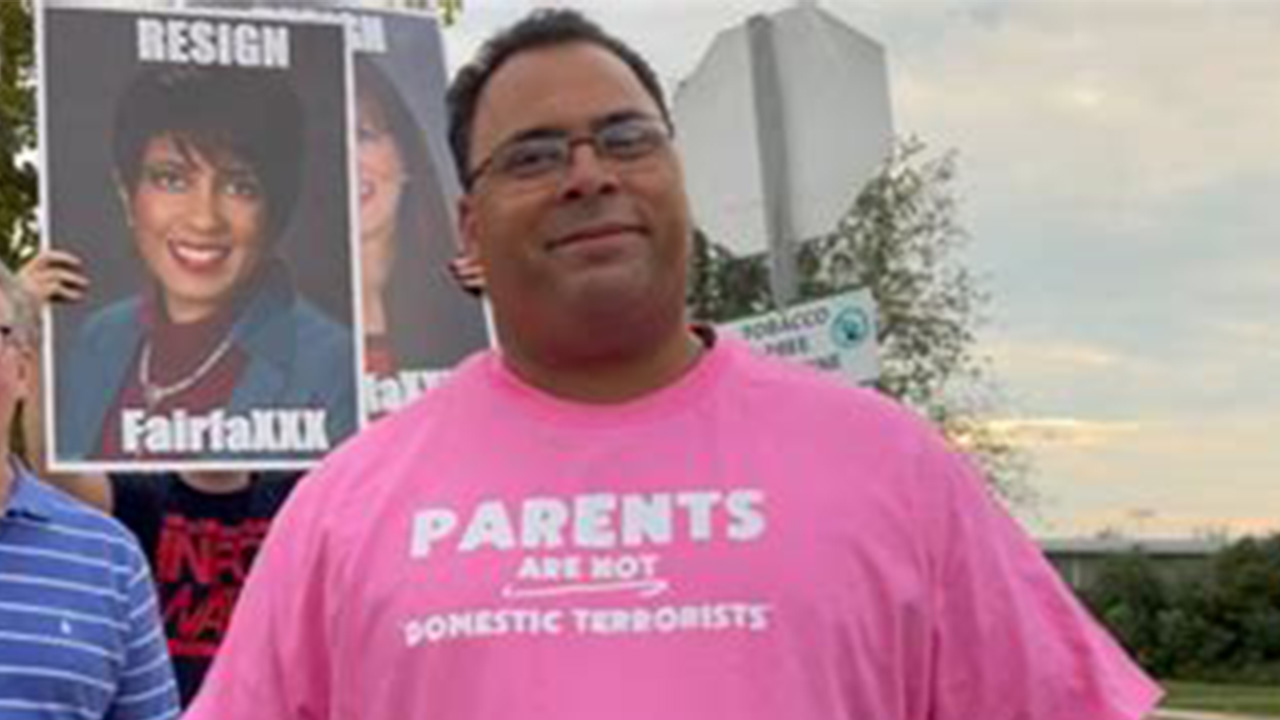


Get a free copy of Parental Rights & Education when you subscribe to our newsletter!

A local district attorney in Fairfax County decided to prosecute a parent for libel and slander for accusing a fellow parent of “grooming behavior” in a Twitter post and on YouTube, but in a major win for free speech, a local judge has dismissed all charges with prejudice.
The case emanated from an extreme difference of opinion regarding admissions policy at Thomas Jefferson High School for Science and Technology. Dr. Harry Jackson, a former PTA president, a university professor, and African-American liaison to the Fairfax County Republican Party, has been active in opposing the school’s race-based admission policy, while Jorge Torrico, another parent and a member of the TJ Alumni Action Group, is fighting to get the school to eliminate standardized testing and teacher recommendations as conditions for admissions to the top-ranked school.
The constitutionality of these admission policies are currently winding their way through the federal court system, with one federal judge ruling that they are discriminatory against Asians. The case could ultimately be taken up by the Supreme Court
In November 2020, however, in the midst of this battle, Jackson allegedly discussed Torrico’s “grooming behavior” on YouTube and Twitter, after other parents accused Torrico of meeting with a high school senior and student government president alone after a PTA meeting and going bicycling with other minor students without their parents’ knowledge.
Jackson sent a tweet directed at Torrico that read, “After seeing you in action last night, I am not comfortable working with you in engaging children. It was very disturbing seeing you exhibit ‘grooming’ behavior. I do work with children and I get background checks, I suggest you do the same because last night was creepy.”
Steve Descano, a local prosecutor elected in 2019 with the backing of George Soros’s Justice and Safety Political Action Committee, had Jackson arrested and charged with libel and slander for this Tweet and other social media posts. The basis for the charges is a 1950 Virginia statute that makes it a crime to “falsely utter and speak, or falsely write and publish” any words derogatory of a “female’s character for virtue and chastity.” In 2020, as part of a sweeping effort to make the Virginia Code gender-neutral, the law was amended to erase the reference to a female’s “virtue and chastity” and replacing it with a “person’s virtue and chastity.”
Descano, who is currently facing two recall petitions, later tried to withdraw the charges, but Marina Medvin, who is representing Jackson for RightDefense.org, pushed to bring the case forward so a judge could officially dismiss the charges and “restore the public’s trust in the First Amendment.”
In Jackson’s motion to dismiss, Medvin noted that the intent of the 1950 law was to criminalize the libel and slander related to “chastity,” or a female’s virginity, but with the sex-specific language now stripped out, the entire law is now too vague to have any meaning. The motion asked: Can a person who is not a female be of chaste character under the law? Is the law even broader than that and includes the criminalization of feelings of insult by any member of society? Can a male who feels insulted by another male pursue a criminal prosecution under this statute? The confusing gender-neutral language in a statute designated to protect a physical characteristic of females inevitably leads to arbitrary and discriminatory enforcement.”
Moreover, the filing noted, this law had remained on the books despite Supreme Court precedent in the 1970s in the cases of Cohen v. California — which defined the differences between “fighting words,” or those likely to result in violence, and free speech — and Gooding v. Wilson, which addressed “facially invalid state laws that criminalize free speech.”
Moreover, the Virginia Supreme Court applied these precedents in the case of Mercer v. Winston, limiting the application of the “chastity” statute and similar Virginia laws only to “personal, face-to-face, abusive and insulting language likely to provoke a violent reaction and retaliation,” and specifically excluding “mere opprobrious words or abusive language.”
As a result, the filing stated: “Statements made on Twitter, YouTube, or to a third party — while they may be unpleasant to a complainant, they are permitted under the Constitution. This court has no power to criminally penalize the defendant for the complainant’s feelings of offense.”
The judge agreed and not only dismissed all four charges, but dismissed them with prejudice, meaning the charges cannot be brought again.
Medvin celebrated the win, but called the case a political prosecution against a “parent concerned about the safety of underage children” that never should have been signed off on by a magistrate. She said,
“What makes this case unique is that criminal charges were brought to suppress free speech — criminal charges — as opposed to a civil lawsuit. In this day and age, I believe it is the only case of its kind. Freedom of speech is paramount to our Republic. Both my client and I realize this. We were not willing to show any concessions on this issue. We fought for my client’s constitutional rights and the representative constitutional rights of every other individual who might find themselves being criminally prosecuted for voicing an opinion or a concern.”
Jackson responded to the judge’s ruling by telling Newsweek, “This has been a stressful time for me and my family during these months of persecution. I feel relieved that I am vindicated and this has changed me by strengthening my resolve in my advocacy in education.”

This was a huge win for free speech. Over the past several years, society has come to accept Big Tech censorship, justifying that it’s fine since they are private companies and therefore have the right to police content on their platforms. Censorship is just the top of a slippery slope, as we see with this case, where a local prosecutor has attempted to criminalize social media speech — not because it was the first time it’s ever happened or because the speech was particularly egregious, but because he didn’t like the political ideology of the person saying it.
Parents standing up for their children have been attacked and slandered as “domestic terrorists” by the Department of Justice, and they have also been labeled “racists,” “misogynists,” “homophobes,” “transphobes,” “anti-science,” and so forth by local school board officials, teachers’ unions, the media, and leftist activists. And yet no prosecutor has ever brought any charges against anyone for those smears and slurs.
The idea that Jackson’s speech was deemed a criminal offense resulting in an arrest is harrowing. One could understand if a civil suit for slander had been brought as a result of this type of comment, but arresting Jackson as a criminal is a totalitarian tactic meant to intimidate others and silence dissent. Let’s hope the judge’s ruling spoke loudly, and that the effort to criminalize American citizens for speaking their minds ends with this case.

